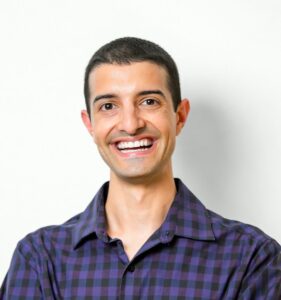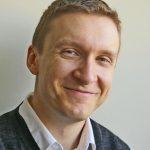Dr. Chris Habib, ND and Dr. Chris Roberts, BSc. (Hons), BEd.,ND
As naturopathic doctors, we work with many patients who seek relief from the symptoms of anxiety. Fatigue, headaches, muscle tension and aches, difficulty swallowing, trembling, twitching, nausea and hot flashes are but a few of troublesome conditions they experience. Many patients, however, discontinue the first-line of treatment, pharmaceutical drugs, because of the negative side effects.
Fortunately, natural treatments are viable alternatives. We looked at the evidence surrounding five supplements — Omega-3 fatty acids, kava, ashwagandha, inositol and L-theanine — and found they provide as much relief as prescription drugs but without the side-effects.
Omega-3 fatty acids
Omega-3 fatty acids form the membranes of our brain cells. A recent randomized-controlled trial among 68 medical students looked at the impact of supplementation on anxiety and blood markers. The students provided blood samples during low-stress periods as well as on days before an exam. The results, published in 2011, suggest that Omega-3 supplements can reduce inflammation and anxiety in healthy young adults1.
Kava
Kava has a long tradition of use in the Southern Pacific Islands where the roots are brewed into a beverage for its calming and hypnotic effects. In 2003, an analysis of 11 studies on the treatment of anxiety with kava found that it was superior to a placebo and “relatively safe” for treatment of one to 24 weeks. Six years later, a randomized trial was published that found that kava compared favorably with a placebo and did so with a greater magnitude than benzodiazepines, a drug commonly used to treat anxiety and insomnia2.
Ashwagandha
Ashwagandha is an herb that has been used historically in Ayurveda, a 5,000-year-old system of natural healing that has its origins in the Vedic culture of India. A recent study examined the use of the herb as part of naturopathic care for anxiety. Employees from the Canada Post Corporation with moderate-to-severe anxiety were randomized to receive standard psychotherapy or naturopathic care for a period of 12 weeks. Naturopathic care consisted of standard psychotherapy along with dietary counselling, deep breathing relaxation, a multi-vitamin and ashwagandha.
Anxiety as measured by a standard tool decreased significantly by 56% in the naturopathic care group compared to 30.5% in the psychotherapy group. Significant differences between the two groups were also observed in mental health, concentration, fatigue, social functioning, vitality and overall quality of life with the naturopathic care group exhibiting greater benefits. No serious adverse reactions to ashwagandha were observed3.
Inositol
Inositol is a substance that is naturally present in human cells and in certain foods, such as beans, fruits and bran cereals. One double-blind randomized trial compared inositol to fluvoxamine, a pharmaceutical drug, in the treatment of panic disorder and anxiety. [A double-blind study is a study in which none of the participants – subjects, investigators and members of the research team – know which treatment a subject is receiving.] Results for inositol compared favourably to the drug fluvoxamine; individuals who took inositol experienced fewer panic attacks. The two treatments were comparable in potency with respect to anxiety4.
L-theanine
L-theanine is an amino acid found in green tea leaves. In one study, participants were given either L-theanine or a placebo. They were asked to perform mental and physiological tasks under stress and then tested for mood states using a standardized tool. The researchers found that L-theanine reduced tension and anxiety (on a scale of one to 10) from ten to one point, as compared to the placebo which reduced the score to six points (5).
Please consult with a naturopathic doctor before taking any of these supplements. The professional will advise regarding dosage and contraindications with other medication. While this article has focused on botanical and nutritional supplements, it is important to look at the lifestyle factors (sufficient sleep, regular exercise and a healthy diet) and social supports that may contribute to anxiety. In this way, anxiety in its many forms can be addressed in a holistic manner.
References:
- Yehuda S, Rabinovitz S, Mostofsky DI. Mixture of essential fatty acids lowers test anxiety. Nutr Neurosci. 2005;8(4):265-267.
- (Malsh U, Kieser M. Efficacy of kava-kava in the treatment of non-psychotic anxiety, following pretreatment with benzodiazepines. Psychopharmacology (Berl). 2001;157(3):277-283.
- Seely D, Singh R. Adaptogenic potential of a polyherbal natural health product: report on a longitudinal clinical trial. Evid Based Complement Alternat Med. 2007;4(3):375-380.
- Palatnik A, Frolov K, Fux M, Benjamin J. Double-blind, controlled, crossover trial of inositol versus fluvoxamine for the treatment of panic disorder. J Clin Psychopharmacol. 2001;21(3):335-339.
- Yoto A, Motoki M, Murao S, Yokogoshi H. Effects of L-theanine or caffeine intake on changes in blood pressure under physical and psychological stresses. J Physiol Anthropol. 2012;31:28.
*****
 Chris Habib, BSc, ND, is an evidence-based naturopathic doctor with over a decade of education in healthcare. He is the clinic director of the multi-disciplinary clinic Mahaya Forest Hill and the Sales Director of the herbal company Perfect Herbs. Chris is also involved in teaching, research, and publishing. He is a clinic supervisor at the naturopathic college and teaches the board exam preparation course. He is also Associate Editor for the Journal of Restorative Medicine and Naturopathic Currents Magazine
Chris Habib, BSc, ND, is an evidence-based naturopathic doctor with over a decade of education in healthcare. He is the clinic director of the multi-disciplinary clinic Mahaya Forest Hill and the Sales Director of the herbal company Perfect Herbs. Chris is also involved in teaching, research, and publishing. He is a clinic supervisor at the naturopathic college and teaches the board exam preparation course. He is also Associate Editor for the Journal of Restorative Medicine and Naturopathic Currents Magazine
Chris Roberts, ND, has an anxiety-centered practice at Mahaya Forest Hill Integrative Health in Toronto. He is  the course coordinator of Clinical Medicine at the Canadian College of Naturopathic Medicine and a supervisor at the Robert Schad Naturopathic Clinic in Toronto.
the course coordinator of Clinical Medicine at the Canadian College of Naturopathic Medicine and a supervisor at the Robert Schad Naturopathic Clinic in Toronto.
Dr. Roberts’s interest in mental health intensified during his undergraduate studies in linguistics and human biology when he began volunteering at a call-in distress line. Anxiety became his specific practice focus while he was completing his clinical residency at the Canadian College of Naturopathic Medicine.

















